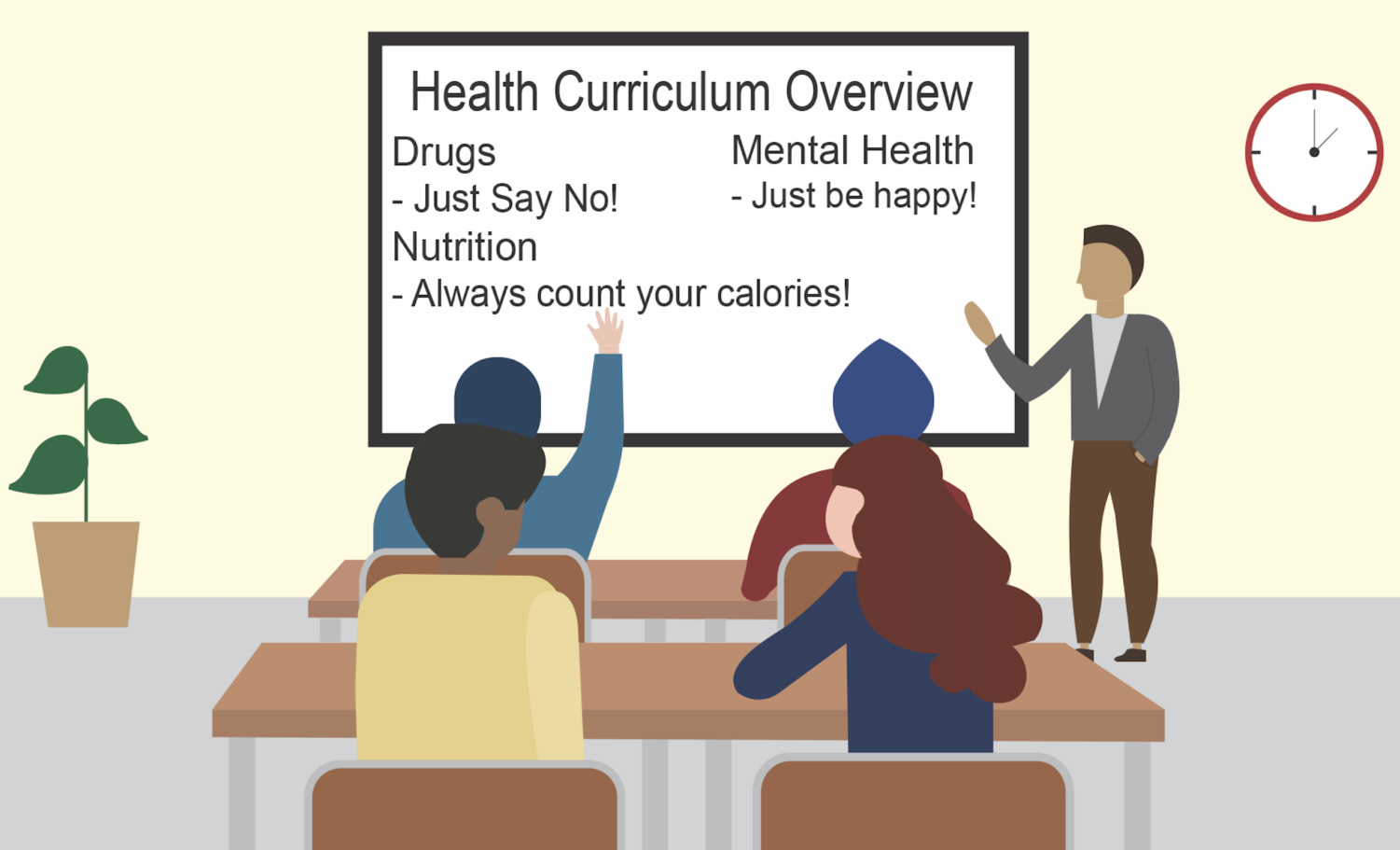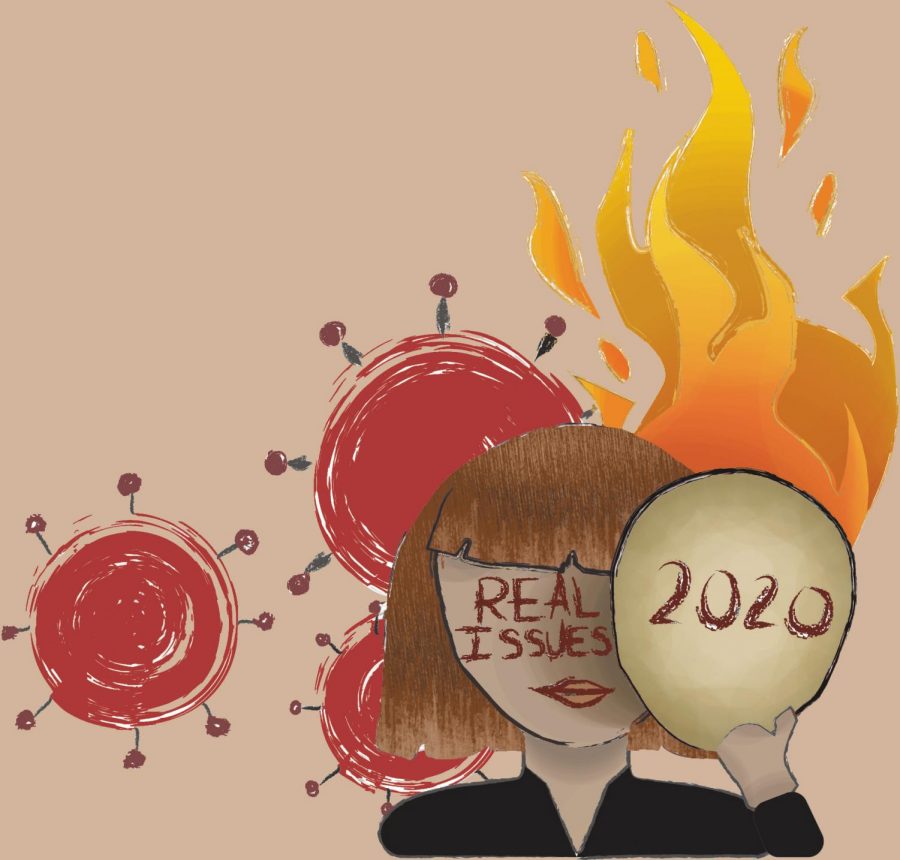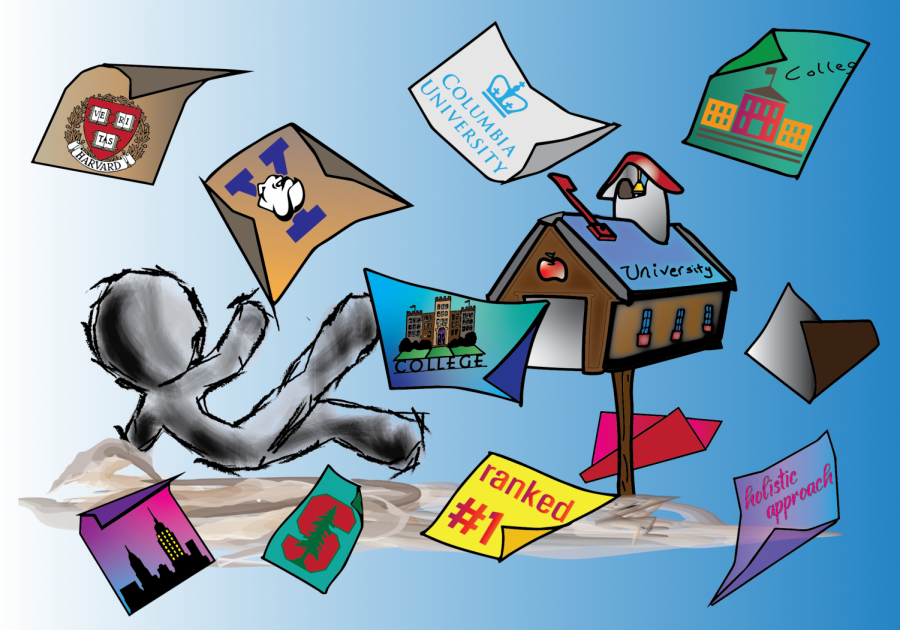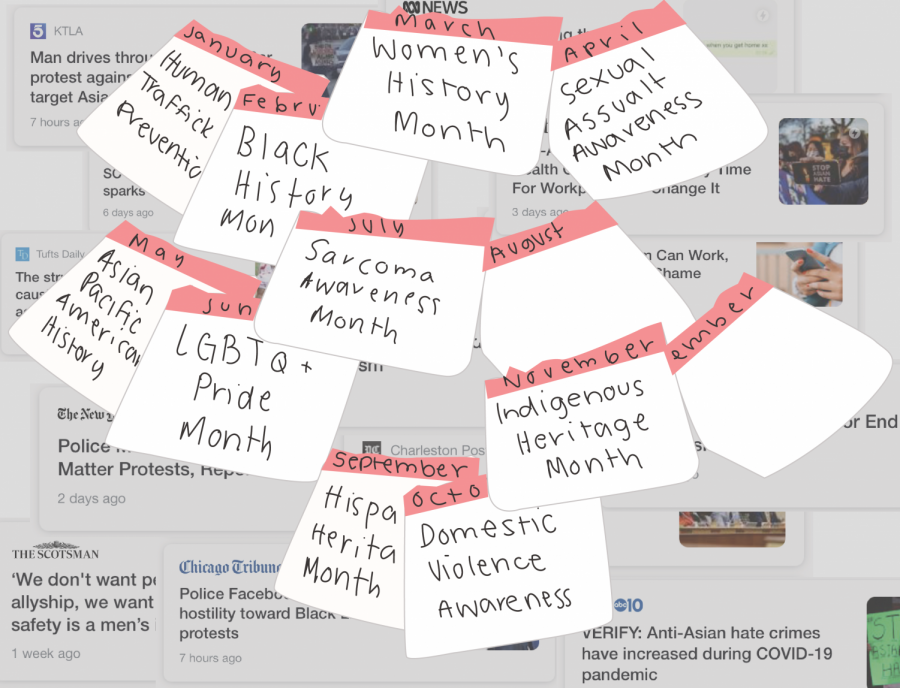Inglemoor’s health curriculum covers a wide variety of topics: health foundations, sex education, nutrition, mental health, alcohol, drugs, tobacco, vaping, self-esteem and stress. But the curriculum leaves out or skims over critical aspects of sex education, nutrition and mental health, leaving students without a comprehensive education, especially those who are able to waive the requirement.
At Inglemoor, information about gender identity, periods and masturbation are not mentioned in the classroom, unless a student specifically asks about them. Pregnancy, rape, abuse, abortions, CPR and anatomy are not covered in-depth. The sexual education unit excludes LGBTQ+ topics, only mentioning them primarily during the lesson about sexually transmitted diseases. Additionally, the unit does not teach students enough about consent.
Abstinence is still taught as the most effective way to prevent STDs and pregnancy. While true, it is not helpful to teach it as the primary method of contraception to students who are already having sex. In the 2021 Healthy Youth Survey, 32% of seniors at Inglemoor reported that they have already had sex. However, only 17% said they were taught methods other than abstinence to prevent STDs and pregnancy, and only 23% said they were taught about healthy relationships and consent. Instead of emphasizing abstinence, the curriculum needs to take a holistic approach to sex education and focus on providing students with the knowledge of a variety of contraceptives, especially if most students will eventually be sexually active.
According to the Harvard Medical Schools Center for Primary Care, comprehensive sex education that includes robust lessons on sex, consent and abortions can prevent sexual abuse and violence. An informed student body means students who are healthier and better prepared for their future. Furthermore, the inclusion of LGBTQ+ topics is critical for students to get accurate and complete information on sex.
The health curriculum takes a similar approach during lessons on alcohol, drugs, tobacco and vaping. Health class is a repetitive lecture of ‘don’t do drugs’ and ‘just say no,’ which, despite being good advice, is not enough to prepare students for real-life pressures, unsafe situations and the struggles of addiction.
The ‘Just Say No’ method has been around since the ‘80s, but it is outdated. According to the National Center for Drug Abuse Statistics, an average of 2.08 million teenagers 12 to 17 nationwide reported using drugs each month of 2019. According to the Journal of the American Medical Association, teen drug overdoses in the US nearly doubled from 2019 to 2020, from 492 to 954 per year, or an increase of 94%. Teaching applicable refusal skills, health literacy and the dangers of drugs can mean life or death and should not be simplified to the outdated method of ‘Just Say No.’
The nutrition unit includes outdated methods of measuring health, like basal metabolic rate. BMR is used to calculate how many calories are needed in a day based on weight, height and activity levels. However, it doesn’t account for muscle mass, bone density or body fat and can be inaccurate. These measurement tools encourage students to compare their weight to each other, which can trigger or exacerbate eating disorders.
Health topics that aren’t covered in depth or at all disconnect the health curriculum from real life. This disconnect is clear when it comes to students’ mental health. According to the Centers for Disease Control and Prevention, suicide was the third leading cause of death among people aged 15-24 in 2020. Yet, the mental health unit doesn’t give students enough strategies to cope with stress, depression, trauma or grief. The Healthy Youth Survey found that 45% of seniors at Inglemoor in 2021 said that they felt sad or hopeless for two weeks or more, which led them to stop doing their usual activities. This emphasizes the need for a more robust mental health curriculum.
The methods used to teach health are ineffective and don’t engage students. The class is a cycle of lectures, taking notes from a Powerpoint presentation, taking a test and then moving on to the next unit. Students ages 14-18 are in the same health class together, and the disparity between their maturity and experiences with sex, alcohol and drugs can create an uncomfortable learning environment.
Additionally, health education, although necessary for students’ health, isn’t accessible for every student. International Baccalaureate students aren’t required to take health classes to graduate. No student should be exempt from the knowledge it takes to make healthy life decisions. Although the current curriculum needs change, health education is still critical for every student and should not be waived under any circumstance.
The health curriculum should include in-depth lessons on a well-rounded curriculum. It should be a requirement for every student to ensure an inclusive learning environment. Outdated lessons like the ‘Just Say No’ method need to be improved to protect students from unsafe situations. The state, district and school administration need to take action to create a more thorough health curriculum. Students need to graduate high school with a comprehensive education that will prepare them to be healthy for the rest of their lives.















